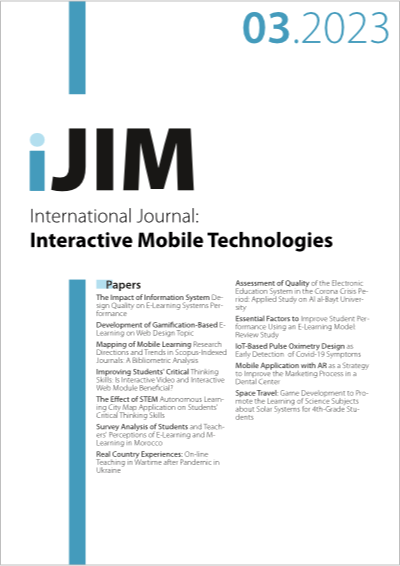Essential Factors to Improve Student Performance Using an E-Learning Model: Review Study
DOI:
https://doi.org/10.3991/ijim.v17i03.35727Keywords:
e-learning, Acceptance Model, HEI, TAMAbstract
The e-learning system is one of the most common methods for improving student performance and the ongoing goal of using e-learning in higher education. The most popular kind of e-learning system is a big one that is used at the college level, including Moodle, MOOCs, and e-learning systems. A rigorous review of various e-learning tools that can be used to raise students' performance is presented in this paper. Based on a survey of the literature, a comparison was established between the key elements employed in e-learning. The method used was to extract the common elements used in more than one popular model, then to connect these factors to e-learning. In order to create a better model with full element constraints, this paper also includes extracting causal links between these aspects. The analysis's finding is that the most recent models accepted for use in raising student performance are TAM2, TAM3, and ECT. This study reveals the framework used to highlights the easy and popular factors according to the updated related studies.
Downloads
Published
How to Cite
Issue
Section
License
Copyright (c) 2023 Ragad Tawafak

This work is licensed under a Creative Commons Attribution 4.0 International License.



